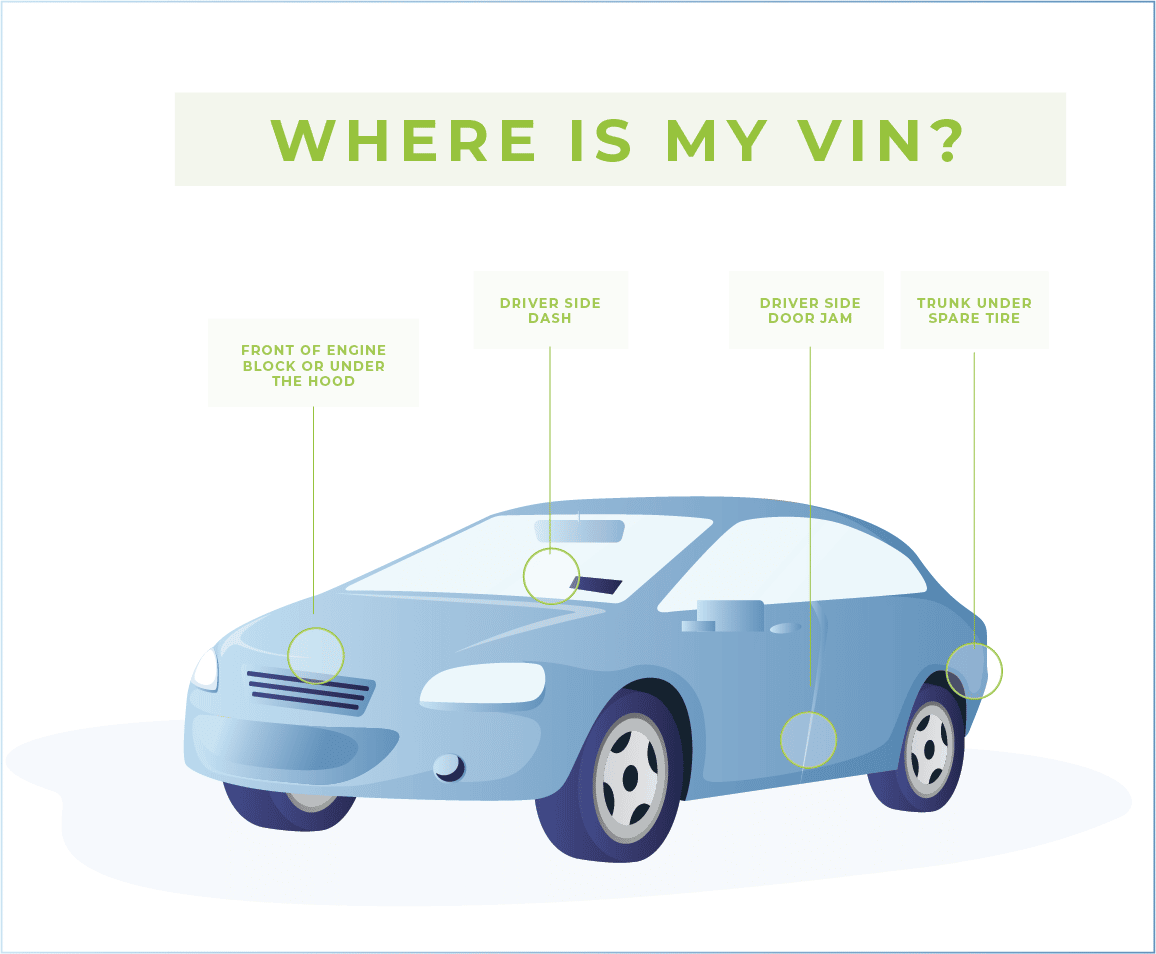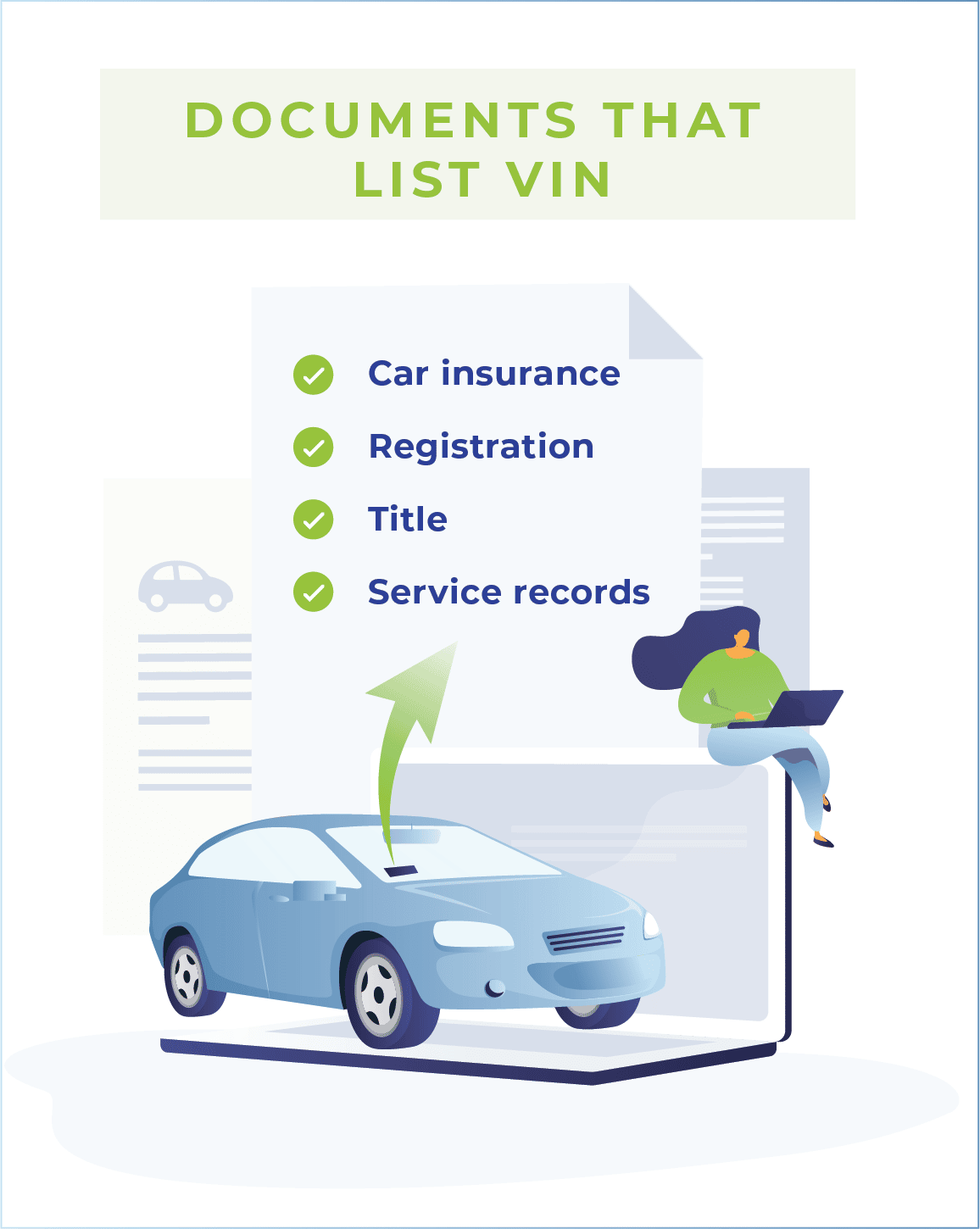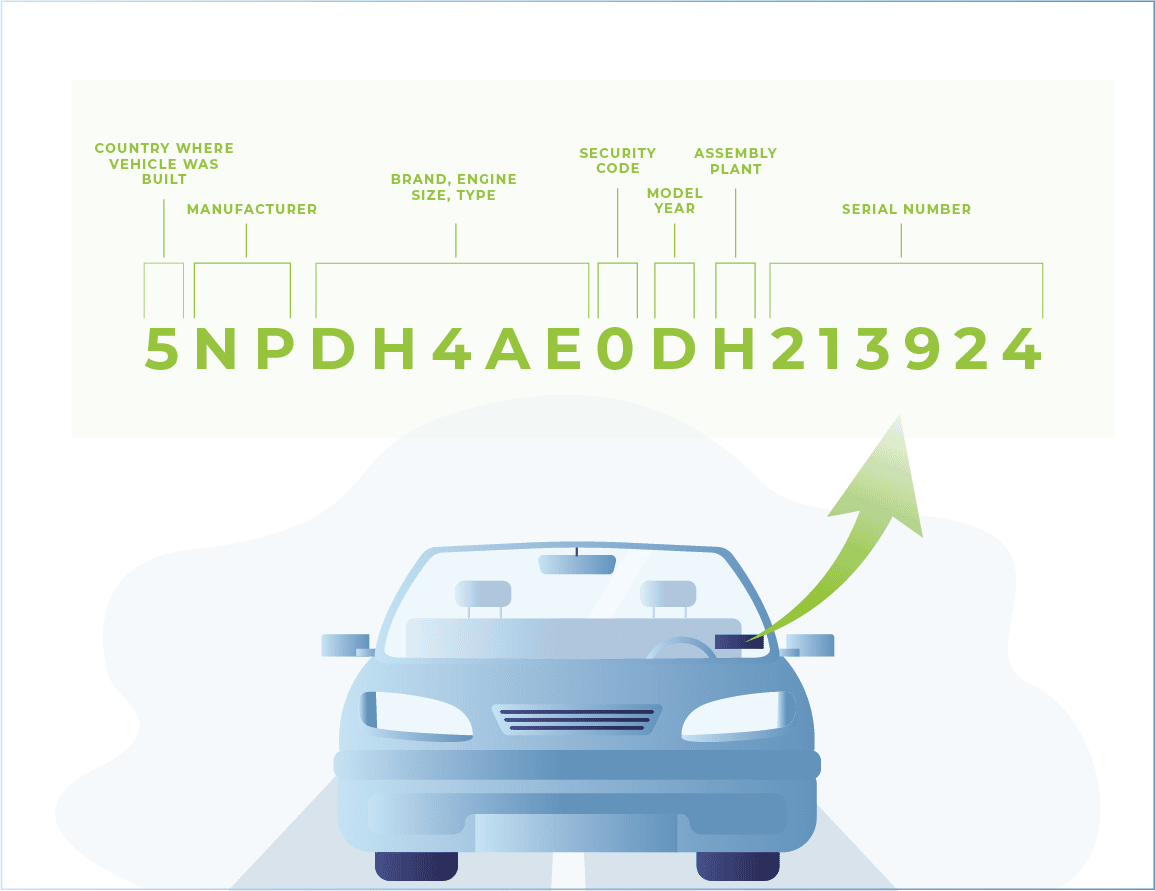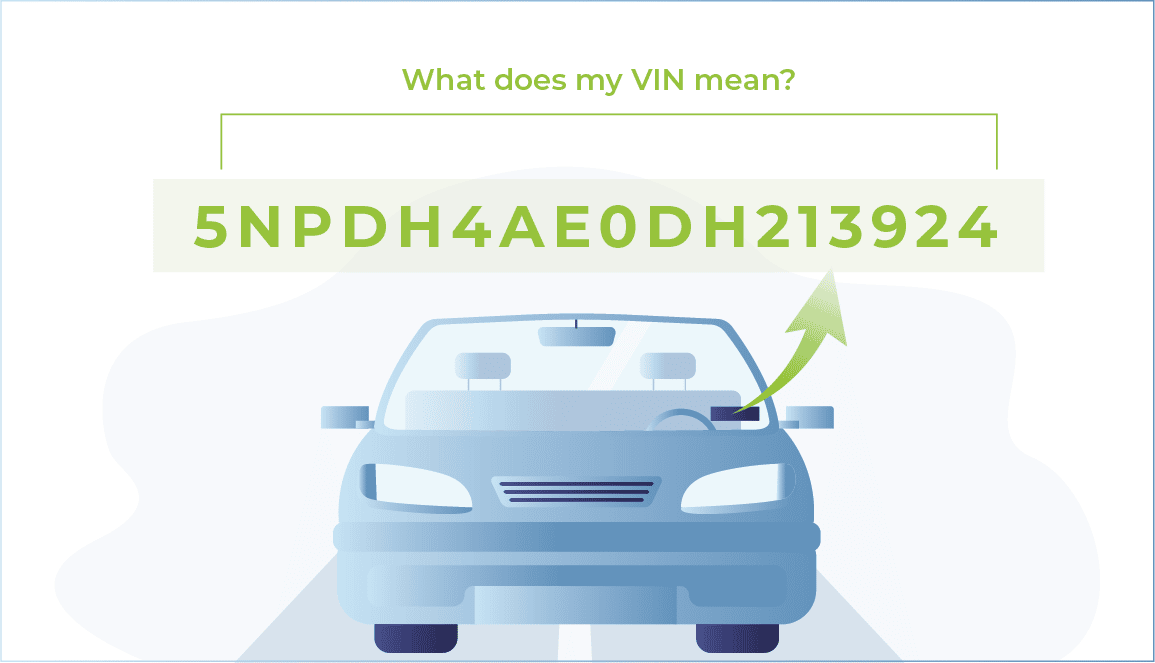A VIN reveals valuable details about a car. What is it? Where do you find it? And what is it used for?
Vehicle Identification Numbers or VIN numbers have been around since 1981 when the National Highway Traffic Safety Administration (NHTSA) began to require them. While it may seem like a completely random number, the VIN offers many important details about a vehicle. Since it can be useful in a variety of situations, you should know where to find the VIN on a car.
What Is a VIN?
A VIN is a unique code that every car receives when it’s manufactured. It usually consists of 17 characters that are a mixture of numbers and letters. If a car was manufactured before 1981 or considered a classic, the VIN may have fewer than 17 characters. Once a vehicle receives a VIN, it’s set in stone and doesn’t change throughout the lifespan of a vehicle.

Where Can I Find My VIN Number on My Car?
The location of the VIN number will depend on the vehicle manufacturer. In most cases, however, you can find the VIN in the following places.
Driver’s Side Dashboard
The driver’s side dashboard is the most common spot for the VIN. If you look through the windshield of a car, you should be able to find it near the bottom corner. It’s a small plate with characters that are about a quarter of an inch in size.
Driver’s Side Door Jamb
You may also locate the VIN on the driver’s side door jamb. It will be on a sticker that includes other important details about the vehicle such as the name of the manufacturer, tire and rim sizes, and manufacturing date. The sticker may also feature a VIN barcode.
Under the Hood
If you pop the hood, you’ll likely find the VIN number. Depending on the vehicle, it may be in front of the engine block, on top of the radiator, or on the driver’s side firewall. The VIN will be listed on a black, white, or silver sticker.
Spare Tire
The VIN may be on the spare tire that came with the vehicle. To check, pick up the tire and look underneath it. If you’re unsure of whether the car has a spare tire, look in the trunk as that’s where it’s usually kept.
Documents
You don’t have to be near the car to know its VIN number. You may look up the car’s title records or check its service records, insurance card, and insurance policy documents. If the car insurance provider has an app, it can be found there as well once you log in.
Owner’s Manual
If the car is new, there should be an owner’s manual. The manual will likely include the VIN or at the very least tell you where you can find it.

How Do I Read a VIN?
Each character in the VIN has its own unique meaning. Here’s a brief overview of what the characters represent.
- First Character: The country in which the car was manufactured.
- Second Character: The name of the manufacturer.
- Third Character: The type of car.
- Fourth to Eighth Character: The engine size and type, brand, model, series, and body style.
- Ninth Character: The security check digit, which proves the VIN is authorized by the manufacturer and can detect an invalid VIN.
- Tenth Character: The model year of the car.
- Eleventh Character: The assembly plant where the car was manufactured.
- Twelfth to Seventeenth Character: The serial number of the car.

You can enter your VIN into our VIN decoder tool below to find out details about your vehicle.
Don’t have your VIN? Try this: 5NPDH4AE0DH213924
Vin Decoder
The VIN entered is invalid. Please check and try again.
What Can You Use a VIN For?
There are a number of situations in which you’ll want to find out the VIN of a car including:
Buying a Used Car
If you find a used car you like, it’s a good idea to check out its history before you buy it. To do so, you’ll need the vehicle’s VIN. The VIN can give you access to valuable information like previous owners, accidents, and repairs. You may also learn whether the car was previously recalled and what was done to resolve the issue.
Selling a Car
When you sell your car, you and the buyer will need the VIN number. The VIN will help you transfer the car title to the new owner. Since the VIN is a crucial part of the transfer process, it’s essential to ensure it’s correct.
Refinancing an Auto Loan
Your VIN helps provide information about your vehicle in the bookout process, the appraisal that determines your car’s value. That value is then used to calculate your loan-to-value ratio. (Learn more about auto loan refinancing.)
Maintaining or Repairing a Car
When you take your car into the dealership or auto shop for a maintenance service or repair, they’ll likely need its VIN. It will give them information about its engine, brake, transmission, and other systems.
Determining Recalls
The VIN can tell you whether a car manufacturer has issued any safety recalls. All you have to do is go to the National Highway Traffic Safety Administration’s recall tool and plug it in. The tool will show any recalls that affected your car within the past 15 calendar years. It will also list any incomplete recalls.
Shopping for Car Insurance
If you’d like to buy a car insurance policy, providers will likely ask you for the VIN when you shop around. The VIN can give them information about accidents, repairs, and other details that may impact the quote you receive. Once you decide to move forward with a policy, the VIN will confirm the vehicle that correlates to the policy.
Submitting Warranty Claims
Every now and then, you may need to file a warranty claim to pay for the cost of a repair. When you do so, you’ll need to provide details about your vehicle and state your VIN number. This will let the manufacturer know whether your car is still covered by the warranty and what types of repairs it’s eligible for.
Handling a Stolen Car
In the unfortunate event your car gets stolen, your VIN will be useful. You may go to a stolen car database called National Insurance Crime Bureau’s (NICB) VINCheck to find it. If law enforcement or insurance companies locate your vehicle, VINCheck will let you know.
A VIN is a Vehicle’s Fingerprint
You can think of a VIN as a fingerprint for any vehicle. It reveals valuable information that can come in handy in certain situations. If you have trouble locating the VIN number on a car, don’t hesitate to reach out to the manufacturer or car dealership for guidance.
;)





